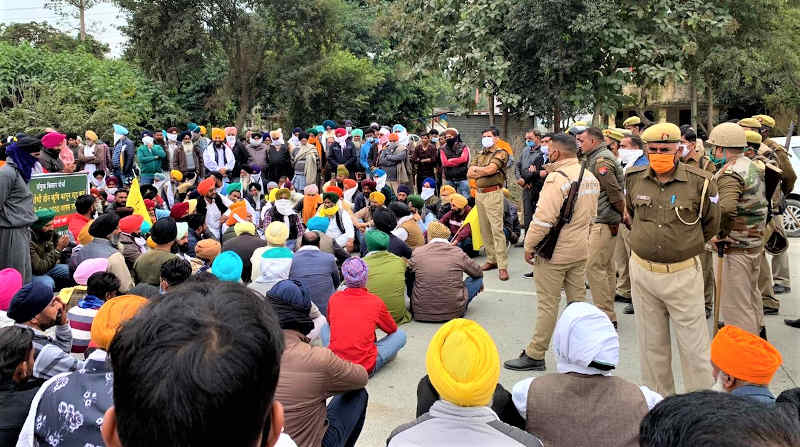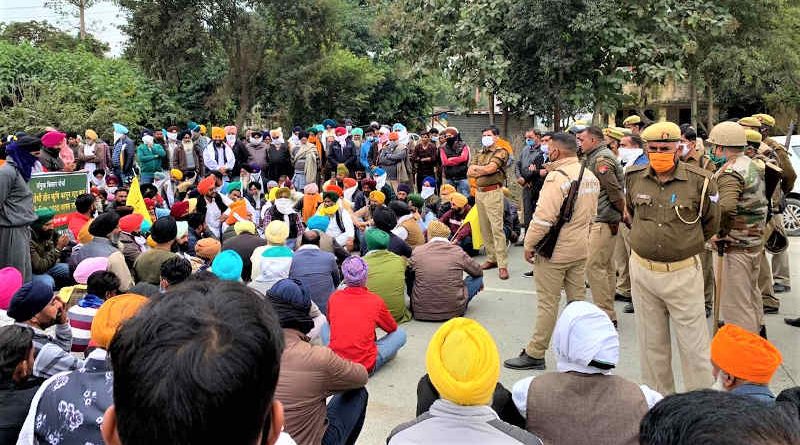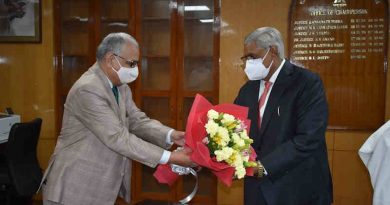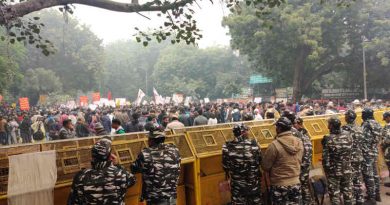Supreme Court Allows Farmers to Hold Protests in Delhi

As the Supreme Court has allowed farmers to continue their protests in or around Delhi, the farmers have decided to intensify their demonstrations.
By Rakesh Raman
The Supreme Court of India said today (December 17) that the farmers who have been protesting around New Delhi have the right to protest and they cannot be asked to end their agitation.
The Supreme Court took this stance after hearing a bunch of petitions which claimed that the protesters are blocking the roads and therefore should be removed with court’s intervention.
Chief Justice SA Bobde said that it is a fundamental right to protest against a law introduced by the government but the protesters should not damage anyone’s life or property.
The court also said it will refer the matter to a vacation bench and suggested that the government should not take any action to implement the laws until the court takes a final decision on the issue. Attorney General KK Venugopal, who was representing the government, said he will get back to the court on the issue after discussion.
Chief Justice Bobde added that protests can continue without violence and the police will not do anything to stop the protests.
Hundreds of thousands of Indian farmers have been protesting on the outskirts of Delhi since November 27 against the new farm laws introduced by the government of Prime Minister (PM) Narendra Modi. While farmers expect the Modi government to repeal the contentious laws, the government has refused to accept farmers’ demands.
According to estimates, nearly 300,000 protesters – mainly from the Punjab state – have been camping on all sides of Delhi. As the protests are expected to continue for a long period of time, the farmers (some with their families) have built makeshift homes on the roadsides of the city.
Rural Resistance: Protests by Farmers in India
This article is part of our exclusive editorial section “Rural Resistance: Protests by Farmers in India”. You can click the following link to visit this section.
[ Rural Resistance: Protests by Farmers in India ]
Farmers fear that these laws – which are being imposed under the garb of agricultural reforms by the government – will deprive them of their farming rights and they will lose their lands which will be grabbed by Modi’s capitalist friends. They expect the government to withdraw these laws.
Earlier, in November, the Modi government – through Delhi Police – had banned farmers’ entry into Delhi under the pretext that they will spread coronavirus in the city. Farmers, however, argue that coronavirus is just an excuse of the Modi government to derail street protests against the government’s autocratic decisions.
A year ago, with a coronavirus excuse, the Modi government had used Delhi Police to forcibly remove the Shaheen Bagh protesters who were not willing to end their agitation.
Thousands of protesters – mainly women – had been protesting in Shaheen Bagh against the Citizenship Amendment Act (CAA), National Register of Citizens (NRC), and National Population Register (NPR) announced by the Modi government.
Protesters said that the discriminatory citizenship laws announced by the Modi government are more dangerous for people than coronavirus. But the government used police force to drive away the protesters from the protest site.
After removing the protesters, the Modi government used draconian laws including sedition and Unlawful Activities (Prevention) Act or UAPA against some of the protesters who were leading the protests at the Shaheen Bagh site.
A number of protesters including students, social activists, and women were arrested by the police and sent to prison. As the Modi government used force to end the Shaheen Bagh protest, it is expected that the government will use the same tyrannical scheme against the farmers’ protests and farm leaders.
Some mischievous government ministers, rogue members of Modi’s party BJP, lapdog media anchors, and blind supporters of Modi government have started defaming the peaceful protesters by calling them anti-nationals.
In response, the Editors Guild of India (EGI) said in a statement that it is concerned about the news coverage of the farmers’ protests in the national capital New Delhi.
The EGI observed that certain sections of the media have been labeling the protesting farmers as “Khalistanis”, “anti-nationals”, and using other such terms to delegitimize the protests without any evidence or proof.
The farm leaders maintain that the government should repeal the contentious laws or use force to remove the protesters. As the Supreme Court has allowed farmers to continue their protests in or around Delhi, the farmers have decided to intensify their demonstrations.
By Rakesh Raman, who is a national award-winning journalist and social activist. He is the founder of a humanitarian organization RMN Foundation which is working in diverse areas to help the disadvantaged and distressed people in the society.





